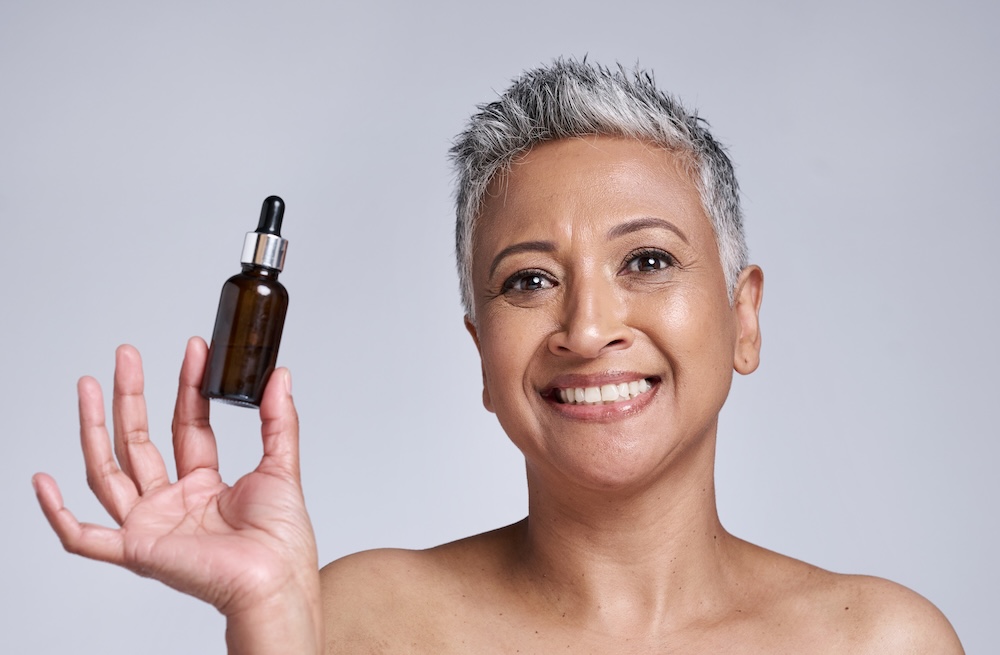Your skin is your body’s largest organ and your first line of defense against the outside world. It’s also one of the clearest mirrors of your overall health—and one of the first places where signs of aging appear. While aging is natural, lifestyle and environmental factors can accelerate the process. The good news: there are natural, sustainable ways to care for your skin, protect it from damage, and keep it vibrant for years to come.
What Speeds Up Skin Aging?
Pollution and Free Radicals
Airborne pollutants and UV exposure trigger free radicals that damage skin cells. This oxidative stress breaks down collagen and elastin—the proteins that give skin its strength and elasticity.
UV Radiation
Sunlight is essential for vitamin D, but overexposure is the leading cause of premature skin aging. UV rays weaken collagen, create uneven pigmentation, and increase the risk of skin disease.
Lifestyle Habits
- Smoking restricts blood flow and robs cells of oxygen, leaving skin dull and lined.
- Poor diet—high in processed foods, sugar, and low in antioxidants—fuels inflammation that speeds up collagen breakdown.
- Chronic stress raises cortisol, which can thin the skin and trigger inflammation.
Environmental Water Exposure
Hard water and saltwater strip natural oils, leaving skin tight, dry, and prone to irritation.
Natural and Sustainable Tips for Protecting Your Skin
Adopt a Whole-Body Lifestyle
- Eat nutrient-rich foods: Focus on whole, plant-based meals high in antioxidants (berries, leafy greens, nuts) to neutralize free radicals.
- Stay hydrated: Reusable water bottles help you and the planet.
- Move often: Exercise boosts circulation, delivering oxygen and nutrients to the skin.
- Manage stress naturally: Yoga, meditation, or simply being in nature helps regulate cortisol.
Use Natural, Sustainable Skincare
Choose products made with plant-based, biodegradable, and responsibly sourced ingredients rather than petroleum-based synthetics. Look for:
- Vitamin C serums from natural citrus extracts to brighten and protect.
- Botanical oils like rosehip, jojoba, or argan to nourish and lock in moisture.
- Aloe vera or hyaluronic acid (plant-derived where possible) to hydrate.
When shopping, opt for brands with minimal packaging, refill options, or compostable materials to reduce waste.
Sun Protection the Mindful Way
Sun safety is non-negotiable, but your sunscreen can also impact ecosystems. Choose mineral-based sunscreens with zinc oxide or titanium dioxide that are reef-safe and biodegradable. Pair this with physical protection—wide-brim hats, breathable long sleeves, and shade during peak sun hours—to reduce product overuse and environmental impact.
Rethink Water Exposure
- Use a pH-balanced, natural cleanser to remove mineral residue after swimming or showering.
- Install a shower filter to reduce chlorine or heavy metals.
- Moisturize with sustainable creams or oils after saltwater exposure to restore balance.
Prioritize Repair Over Excess
Instead of cycling through dozens of trendy products, focus on a simple, consistent routine with quality, multi-use items. Fewer products mean less waste and packaging, and your skin benefits from stability.
Seek Professional Guidance Naturally
If you’re struggling with skin concerns, dermatologists can help tailor approaches that fit your skin type. Ask about sustainable product lines or eco-conscious treatments.
Final Thoughts
Caring for your skin doesn’t have to mean endless products or harmful chemicals. By adopting natural, sustainable habits—whole foods, mindful sun protection, plant-based skincare, and low-waste routines—you protect not just your skin but also the planet. Small daily choices ripple outward, slowing premature aging while reducing environmental harm.
Your skin and the Earth share a common truth: both thrive when treated with respect, balance, and sustainability.








